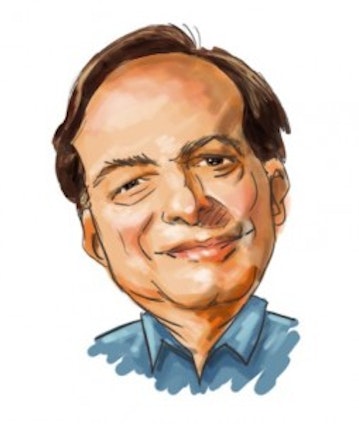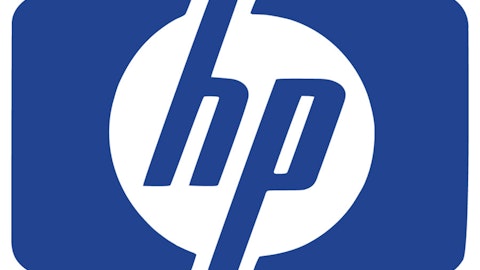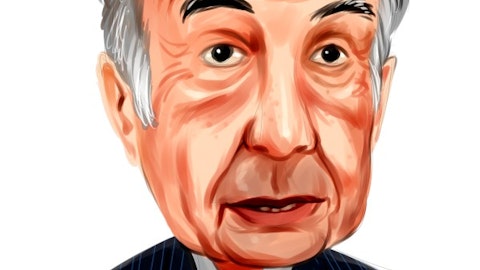
On August 10, Bridgewater Associates filed its 13F, revealing the latest stock changes and moves. Dalio’s top four holdings are ETFs. These include the SPDR S&P 500 ETF (NYSEARCA:SPY) and two emerging market funds.
The largest single holding of common stock that Dalio reported was of Microsoft Corporation (NASDAQ:MSFT). His holdings are valued at about $47 million with about 1.5 million shares. Over the past year, Dalio has been steadily increasing his position in Microsoft Corporation (NASDAQ:MSFT), upping it 2200 percent from the fourth quarter 2011 to the first quarter 2012. The company is about to release its much-anticipated operating system Windows 8 for both PC and tablet, though its primary commitment still lies in the Office Suite, which Microsoft is presently working to place in the “cloud.” The company’s shares are trading at around 9.7 times S&P’s estimate 2013 earnings, which matches historically low valuations for the company. Over the past five years, the P/E range for Microsoft has been from 9 to 20.
Dalio’s seventh largest holding is Hewlett-Packard Company (NYSE:HPQ), valued at about $39 million. Though other giants like Jim Chanos have suggested shorting this stock—even at around $20—Dalio has actually increased his holdings by about 235,000 shares since the first quarter. The company’s new CEO, Meg Whitman, has committed herself to slowing down the indiscriminate acquisitions for the company and increasing margins. However, the Personal Systems Group, quite sizable after the 2001 acquisition of Compaq, will not be spun-off, as some analysts had suggested. The hunch, then, is that this part of Hewlett-Packard Company (NYSE:HPQ), which accounted for 30 percent of total revenue in the second quarter, will be better integrated with its enterprise and service solutions.
Oracle Corporation (NASDAQ:ORCL), Safeway Inc. (NYSE:SWY), and Dell Inc. (NASDAQ:DELL) occupy positions eight, nine, and ten on the Dalio’s list of top holdings. Bridgewater has nearly doubled its holdings in Dell to about 2.3 million shares. Dell Inc. (NASDAQ:DELL) is also restructuring in order to enter new markets, much in the way that Hewlett-Packard is. Safeway Inc. is another position that Dalio has been steadily increasing over the past year, with 1.86 million shares, up from 729,000 in the first quarter. The stock is presently trading below its October 2011 lows. In all, Dalio is probably more optimistic regarding American consumer staples considering his bearish outlook on Europe and cautious view of Chinese growth.
At the number eleven on his list of top holdings, Best Buy Co (NYSE:BBY) recently announced that Richard Schulze, founder of the electronics giant, was offering a preliminary take-private agreement at about $24 to $26 a share. This special events play will work in Dalio’s favor—he initiated his present 1.2 million share position in the company entirely in the second quarter at likely no more than $21 per share, and perhaps likely a few dollars lower.
In his second quarter letter to investors, Dalio noted that the US and UK have outperformed a balanced portfolio of worldwide equities by 33 and 11 percent, respectively, since 2009. He thinks that the US monetary policy, via the extension of the “Twist” stimulus, has kept American equities moving despite the political polarization (which he considers a rather obvious and foreseeable outcome of the present economic situation). His equities investment thesis is famous for being “pure alpha” (a term he invented) in that he seeks low correlation with the broader market, increasing the probability of outperforming returns. Indeed, he seems to be continuing a long ethic of doing just that.





